A new Art Gallery of Ontario exhibit looks at the beauty and culture of the African diaspora
Josef Adamu, the creative collective’s founder, helped craft images of the African diaspora
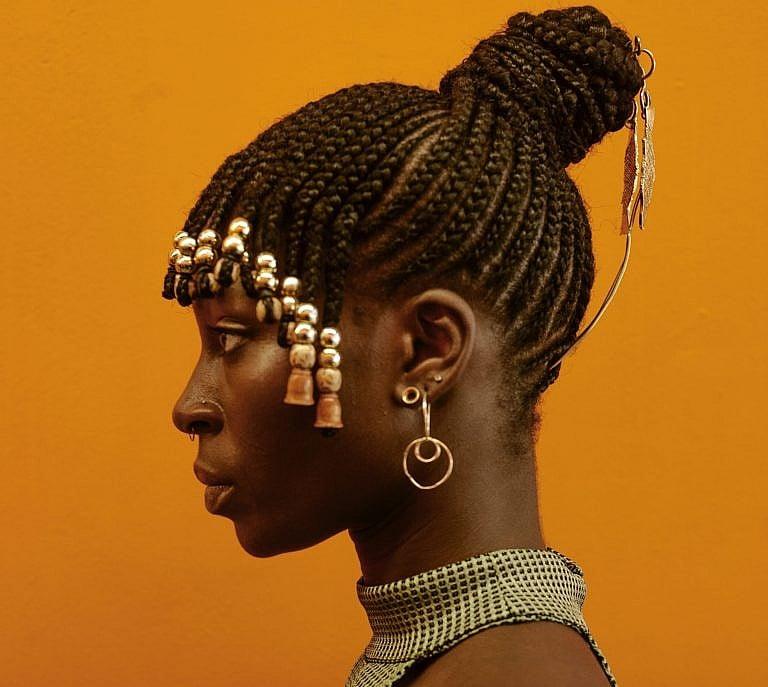
Share
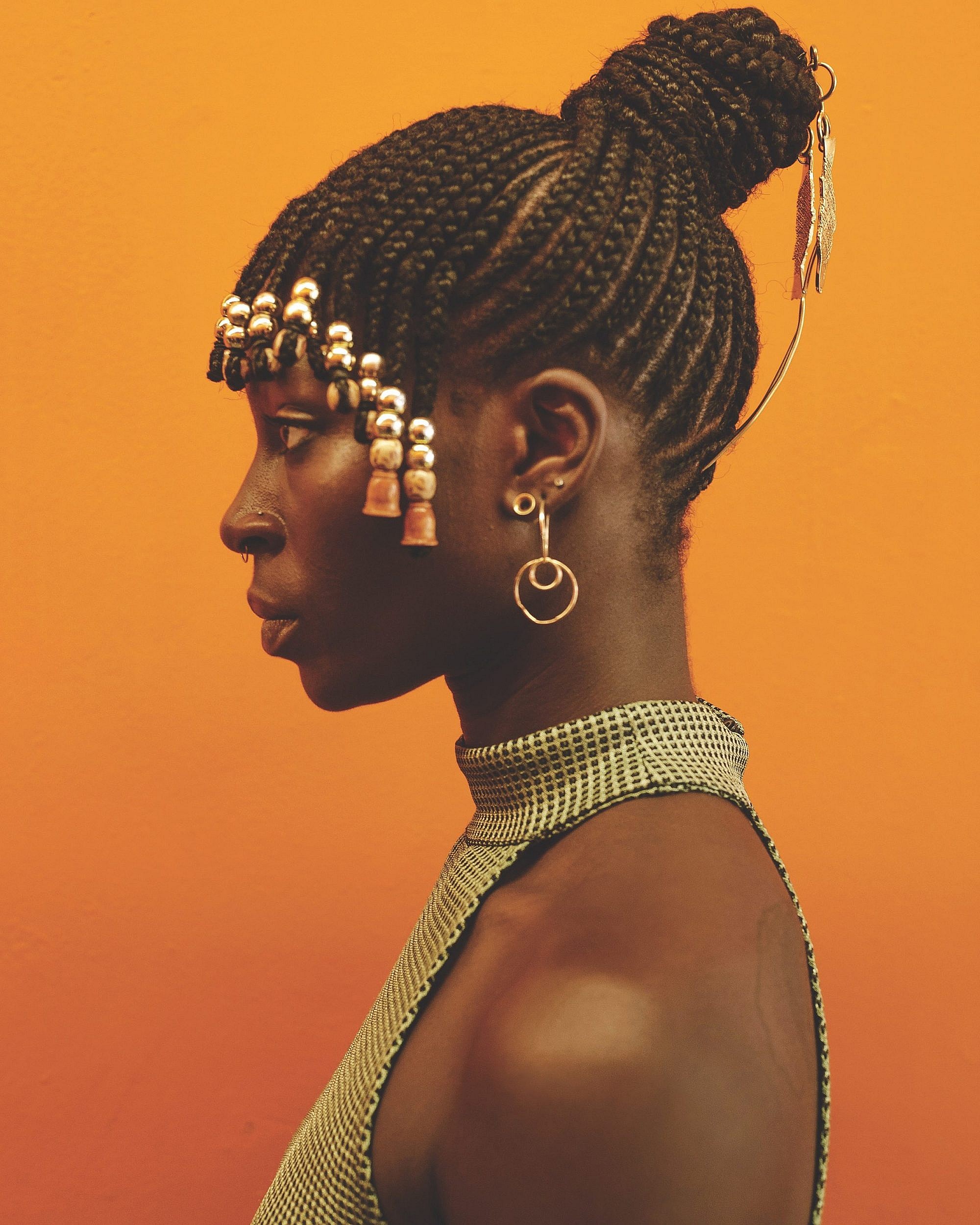
At 24 years old, Josef Adamu was an aspiring model struggling to gain traction in his career. Then he had an idea: if he wanted to find a path forward in his industry, he should carve one out for himself. Adamu initially wanted to start a modelling agency, but found the concept too restrictive. Instead, while working out of his mother’s basement in Toronto, he conceived of Sunday School, a creative brand agency that would work with companies on visually striking projects. His agency’s services include corporate campaign art direction, social media marketing, photography and videography, with a strong focus on stories and subjects from the African diaspora.
At first, Adamu wanted to control every shoot and project himself. “I didn’t leave much creative breathing room for people working with me,” he says. As the agency’s only permanent member, he primarily worked with freelancers, whom he hired on a project-by-project basis. Over the years, as he built up an international network of photographers, cinematographers, stylists and makeup artists, he learned to embrace bona fide creative collaboration.
“The people behind the scenes are part of my culture,” he says. “Because the work is coming from our community, it’s easy to be intentional with every detail.” Soon, major brands noticed something special about Sunday School: the agency has worked on campaigns for Nike, Converse, Topshop and Sony, and celebrities like Lupita Nyong’o have recognized its work.
Sunday School’s first major Toronto exhibition, Feels Like Home, debuts at the Art Gallery of Ontario in May. The exhibit, which will run for a year and showcases the collaborative efforts of at least 40 people, features work from three projects.
The Hair Appointment looks at the practice and ritual of natural hair braiding, exploring salons as community spaces. Ten Toes Down depicts a Black ballerina who has finally found pointe shoes and tights that match her skin tone—a meditation on identity, representation and belonging. And Jump Ball, a five-part series, is about the intersection of basketball and the African diaspora. “These three pillars are ways for us to tell stories around what it means to feel at home, far beyond a place where you rest your head,” says Adamu. It’s also a literal homecoming for Adamu, born and raised in Toronto, who has been working in New York for the past few years.
The exhibition reveals the fruits of Adamu’s transformation as a creative director: after relinquishing some of his control, he’s become more open to spontaneity and improvisation during photo shoots. In an image from Jump Ball, which shows two Ghanaian youths wearing traditional garments on a basketball court, the use of colour is striking. Between their clothing, the basketballs and the hoop, it’s a veritable spectrum of orange—a happy accident, it turns out, and the type of creative coincidence that Sunday School has come to embrace. “I dropped my ego,” Adamu says, “and there’s real power in that.”
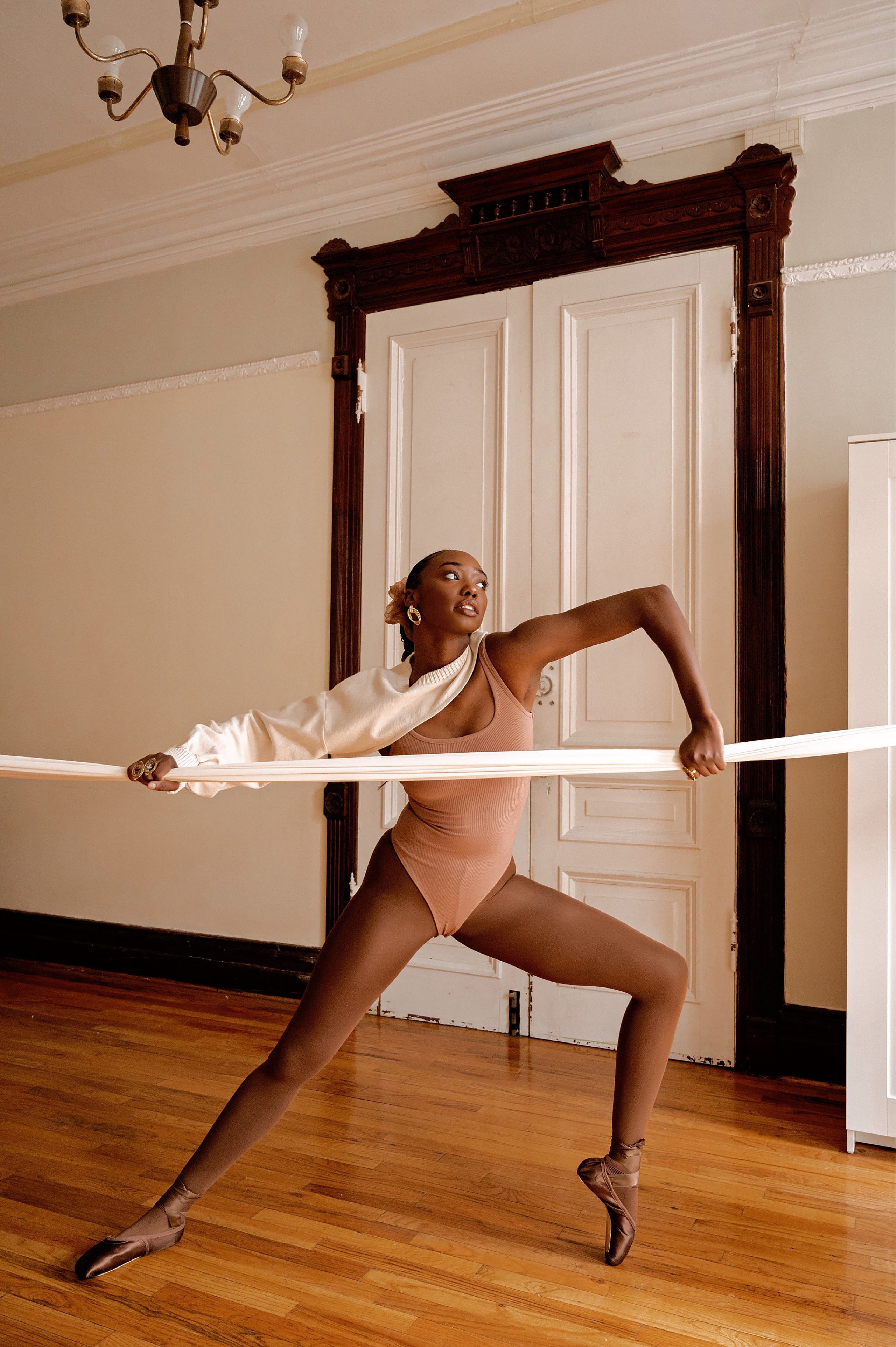
“Ten Toes Down,” by Kreshonna Keane, 2021
For much of her dance career, this young ballerina from Philadelphia had to use tights and pointe shoes that were too light for her skin tone. She would “pancake” the garments, applying makeup to them to match her complexion. For this photo shoot, Sunday School partnered with Freed of London, a British company that was one of the first to offer shade-inclusive ballet wear. The project’s name has a double meaning, referencing both the position of the dancer’s feet and a message to focus on what you love to do.
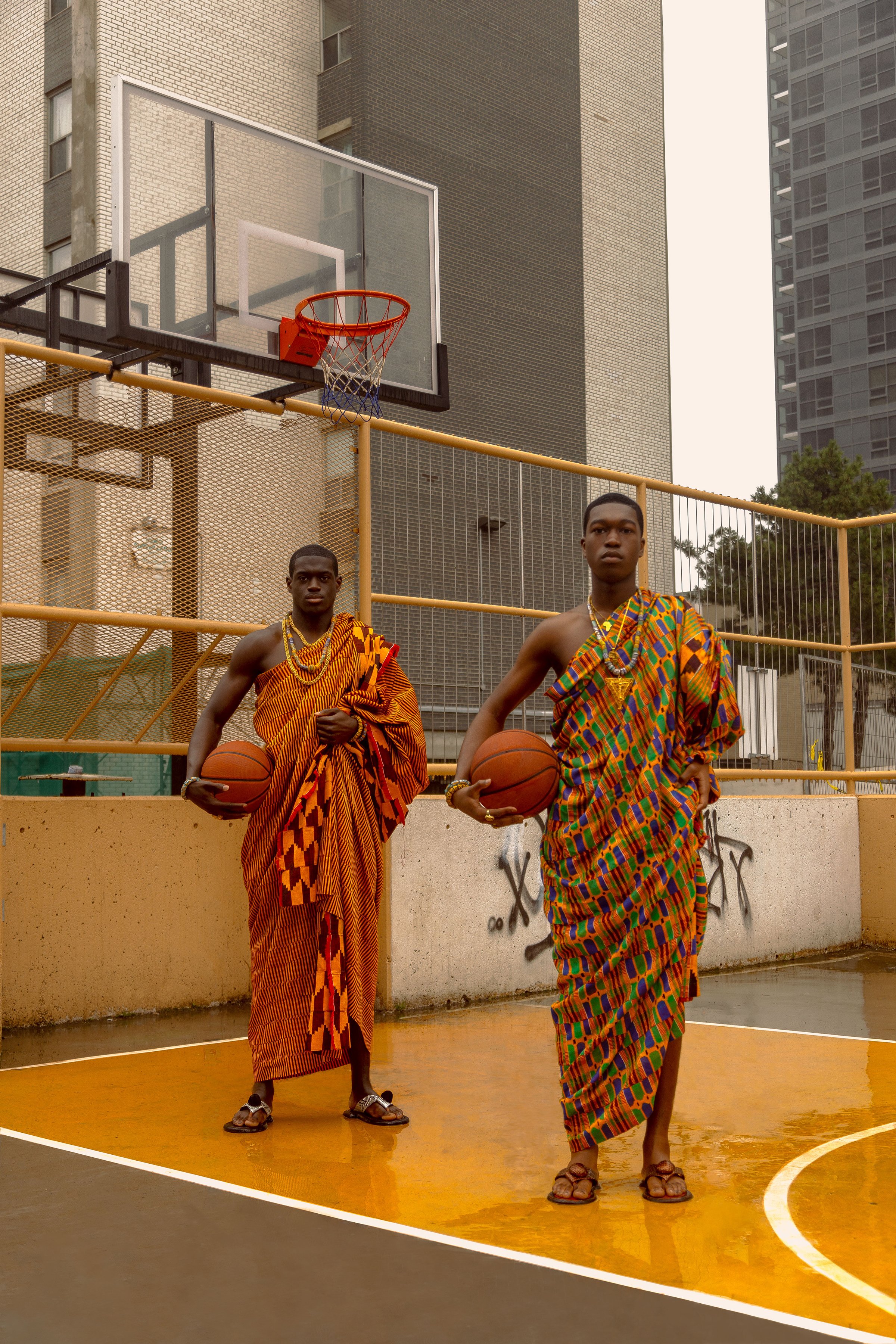
“Jump Ball: Toronto,” by O’shane Howard, 2019
Jump Ball is a five-part series about the cultural intersection between basketball and African tradition. Photographed on a basketball court in St. James Town, Toronto, this image is from the series’ first iteration. It depicts two Ghanaian youths wearing traditional garments that they would normally wear to a family function or special occasion. Adamu met the pair through friends, and he is interested in the way members of the African diaspora shed or don traditional attire—and in turn, parts of their identity—to adjust to their environment.
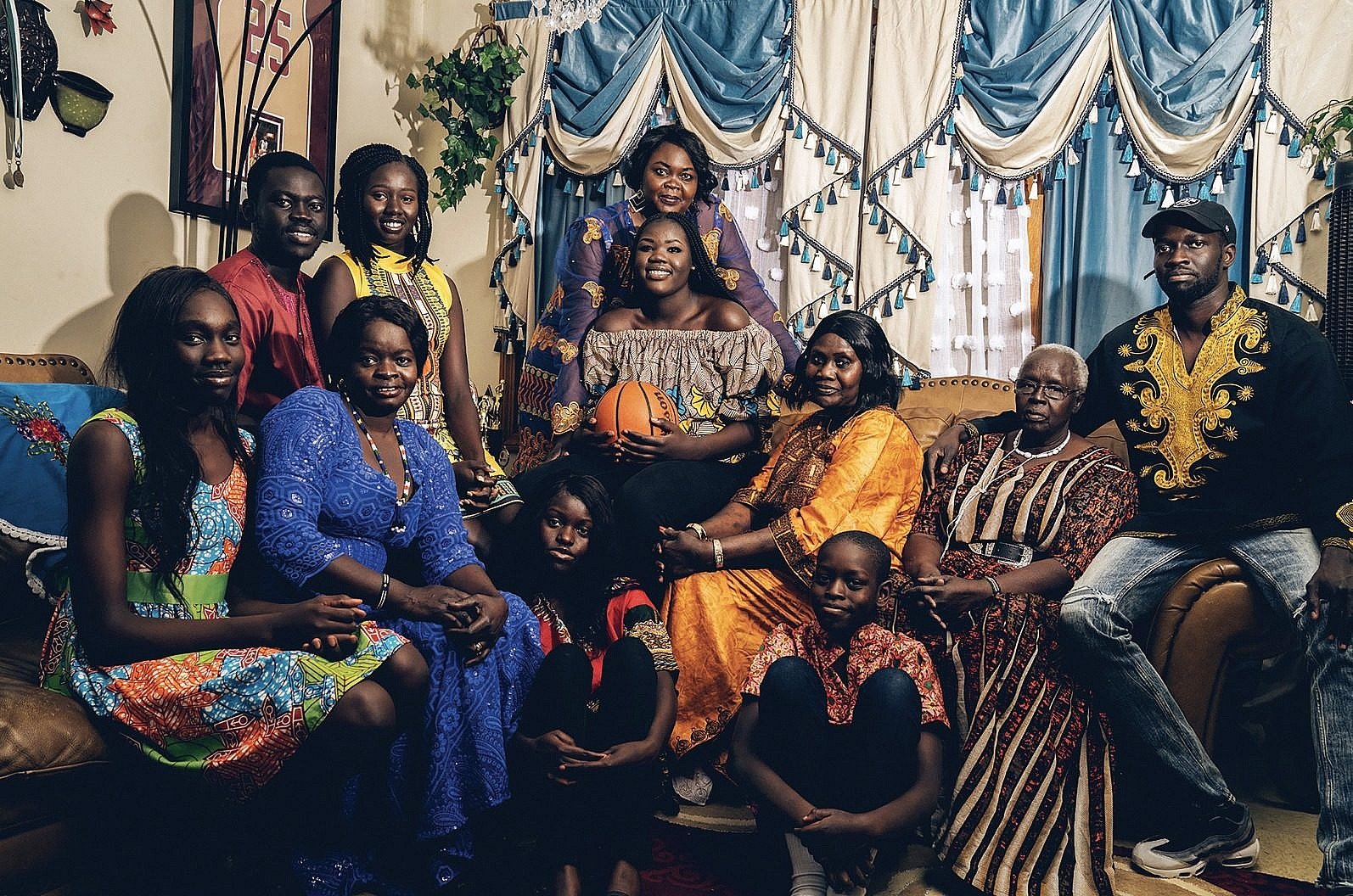
“Jump Ball: Mighty Migration,” by Joshua Kissi, 2020
The Gabriel family, photographed in their Manchester, New Hampshire, living room, escaped the civil war in South Sudan for the United States in the ’90s. Several children in the family are basketball stars, including Wenyen (not pictured), who plays for the Los Angeles Lakers; Piath, the young woman holding a basketball, is the next prospect to go pro. The house is filled with basketball jerseys and trophies, and the living room is the site of a family tradition: gathering in front of the TV on NBA draft night and waiting for a family member’s name to be called.
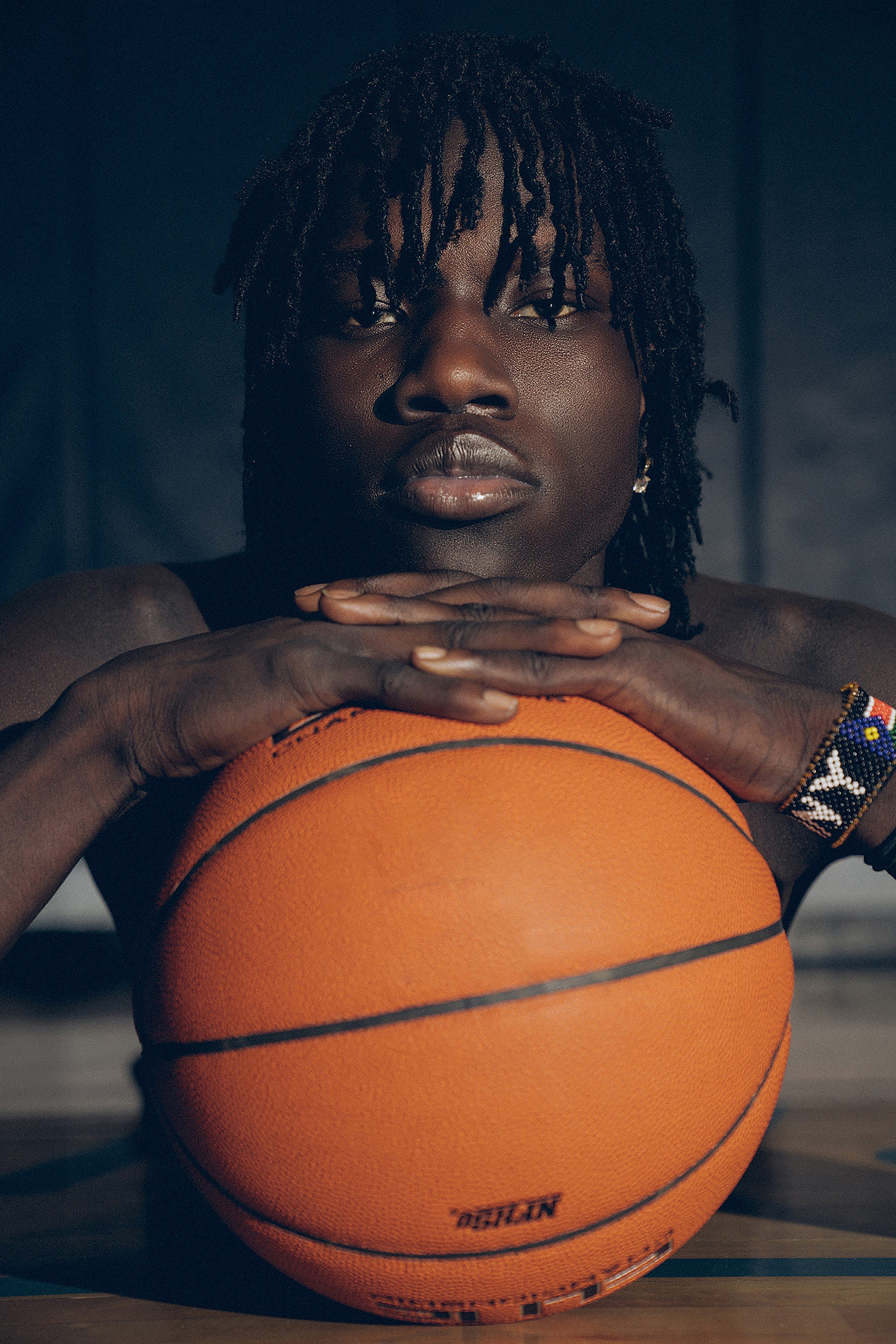
“Jump Ball: Mighty Migration,” by Joshua Kissi, 2020
This young man is a close friend of the Gabriel family, who are the main focus of the series. This shot was taken on a New Hampshire basketball court during a casual weekend game. Adamu chose this subject in part for his large hands—posed on the ground with his hands over the ball, looking dead centre into the camera, he suggests the strength and empowerment imparted by the game. On his left wrist, he wears a bracelet depicting the South Sudanese flag.
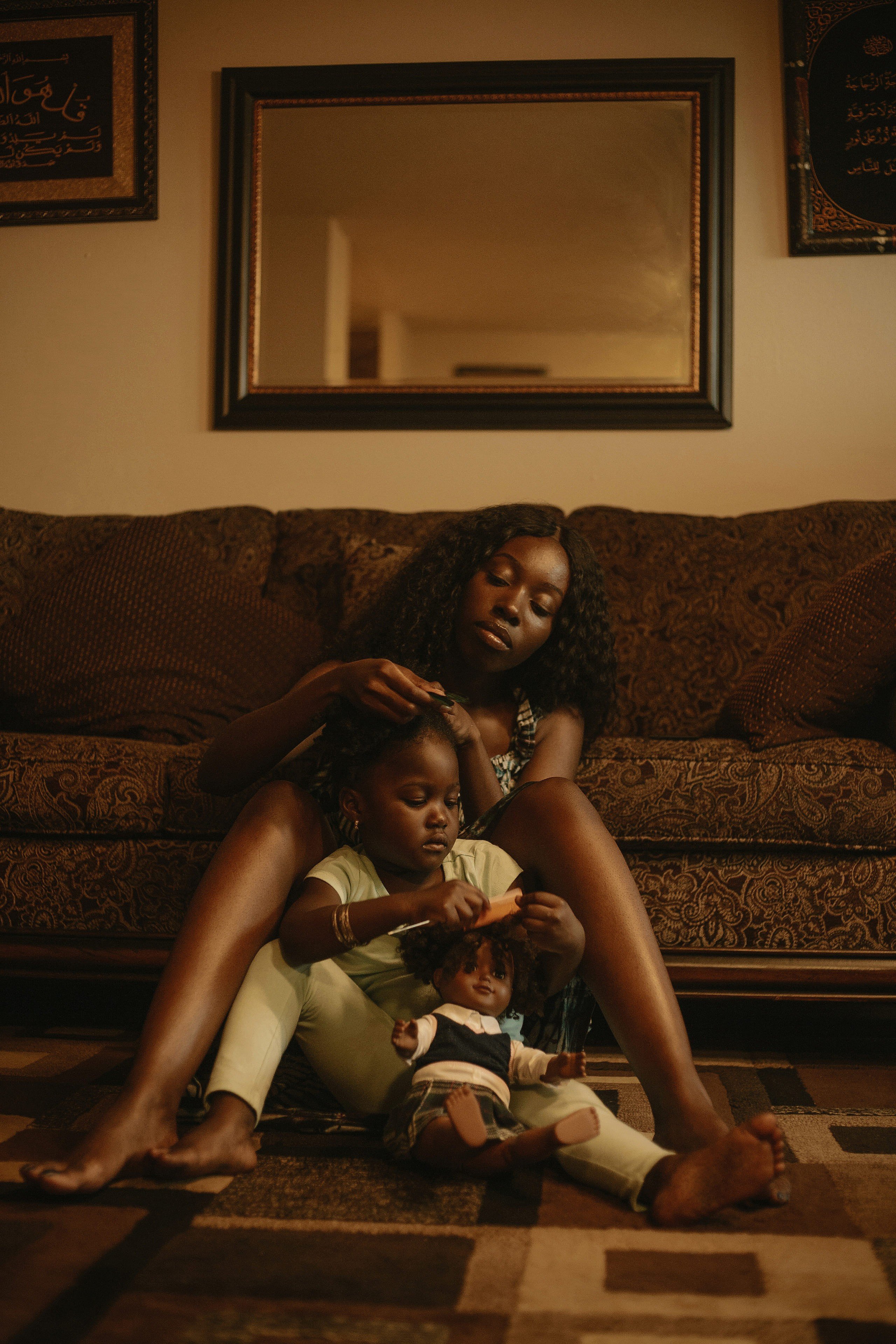
“The Hair Appointment,” by Jeremy Rodney-Hall, 2018
An intimate image of an auntie and her niece during their Sunday night hair-braiding routine. They are real relatives, and Adamu met the woman through a casting call for an early project. She connected Adamu to her aunt’s hair salon, which became the inspiration for The Hair Appointment series. The child mimics her aunt’s movements on the doll’s hair, depicting how this knowledge is passed from generation to generation. Adamu intentionally centred his subjects between two picture frames on either side of the mounted mirror, and kept the colours muted to pull focus towards them.
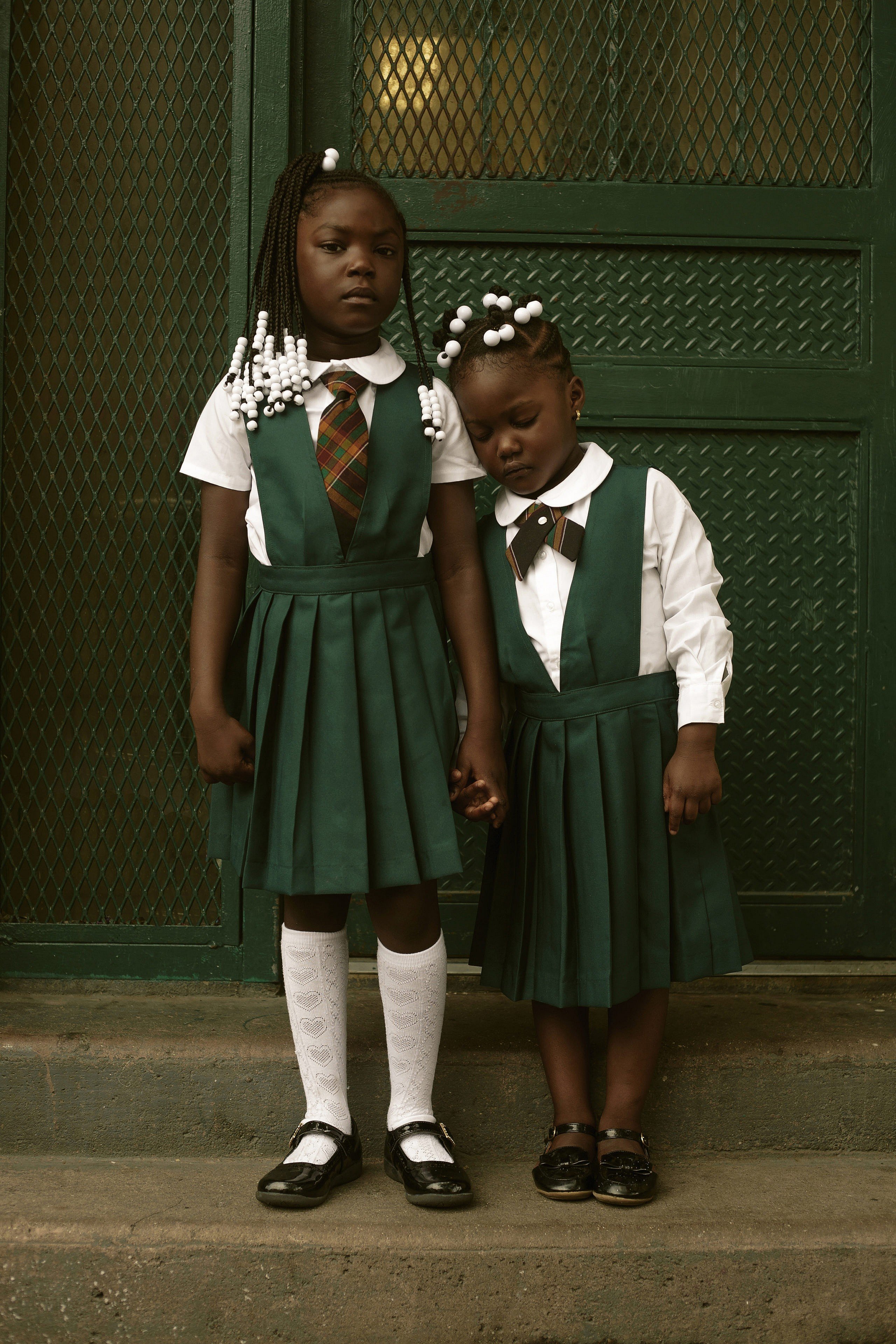
“The Hair Appointment,” by Jeremy Rodney-Hall, 2018
In this image, choreographed by Sunday School, a little girl leans on her sister, both sporting perfectly coiffed braids and posed in front of their Brooklyn apartment building. The girls are sisters (though these aren’t their real school uniforms), and the image is all about their kinship. The older child keeps her fist loosely clenched and her expression stoic, as though she’s protecting her sleepy little sibling. One child wears high white socks, while the other is bare-legged—an intentional detail meant to highlight their contrasting personalities.

“The Hair Appointment,” by Jeremy Rodney-Hall, 2018
This installment in Sunday School’s series features natural hair braiding, which takes place in salons and living rooms—spaces that have long been community hubs within the African diaspora. The image, taken in Alima’s Hair Braiding Salon in Brooklyn, recreates the moment before a client leaves the appointment, in which a stylist will often document their work with a final shot against the salon wall.
Feels Like Home is on display at the Art Gallery of Ontario until May 2024.